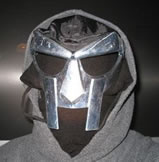“It’s too short,†said the person who gave me this CD, to which I responded in my usual knowitall kinda way that I like short albums because it means the work is not bloated with extras and mystery tracks and all kinds of nonsense that I’ll just end up skipping anyway. But this time, after I listened, I agreed.
Bettye LaVette’s The Scene of the Crime is a collection of one original work (the autobiographical “Before the Money Came (The Battle of Bettye LaVette)”) and nine Southern soul reinterpretations of classics you might never have heard before, from a diverse and skilled roster of established pop stars, blues grinders, and singer-songwriters. The album’s title derives from the fact that Ms. LaVette, now over 61 years young, has returned to Muscle Shoals, where she cut her amazing debut recording way back in 1972. The difference is that back then the label gave her a studio band and selected her songs, whereas now Bettye, backed by no less than the Drive-By Truckers, has done it all herself.
She hops through Willie Nelson’s “Somebody Pick Up My Pieces” and kills Eddie Hinton’s “I Still Want to Be Your Baby (Take Me Like I Am)” and John Hiatt’s “The Last Time.†But LaVette isn’t just picking songs she likes: She’s picking artists she wants to defeat. Just as Aretha stole “Respect†from Otis, after hearing these covers you may never want to go back to the originals again. Bettye even manages to one-up the legends Ray Charles (“They Call It Love”) and George Jones (“Choices”). The brightest gem is Elton John’s “Talking Old Soldiers,” in which LaVette uses her age to her credit, rasping with swagger and bravado, “I may be just an old has-been to some/But I know how it feels to grow old.”
That autobiographical cut tells the story of her 1972 session, which was , LaVette cut what was meant to be her first solo album in that same place. For some reason, shelved by the label (Atlantic Records) and wasn’t released for three decades—and then only in France. Like Big Daddy Kane or the Biz, Bettye talks of being screwed by the industry and denied her dues, proving that her hard-living singing style was hard won. If you compare LaVette’s voice now to the way it was back then, you can hear the wisdom in it. It’s richer, it’s deeper, it’s older. But it’s no less powerful. Bluesmen become grizzled and throaty, more authentic. If Scene of the Crime is any evidence, then we can say the same for at least one soul stirrer’s latest effort.
Even if is too short.

